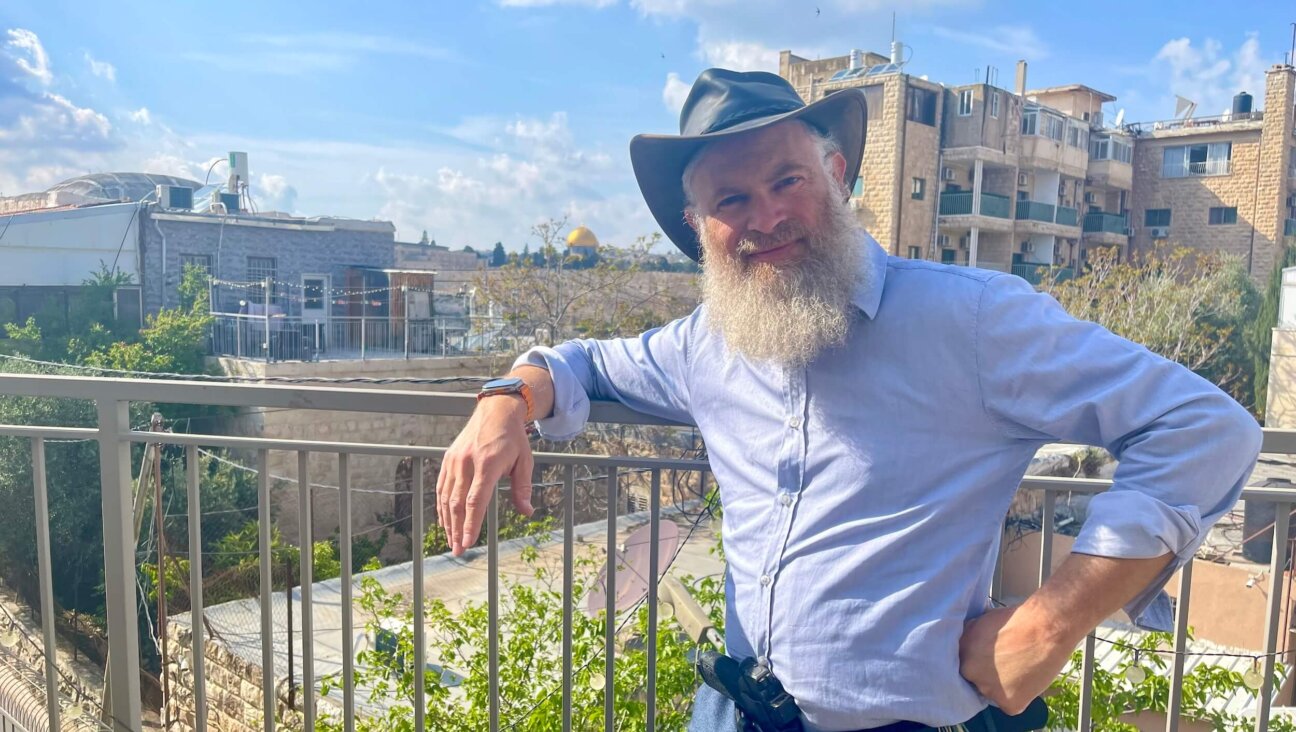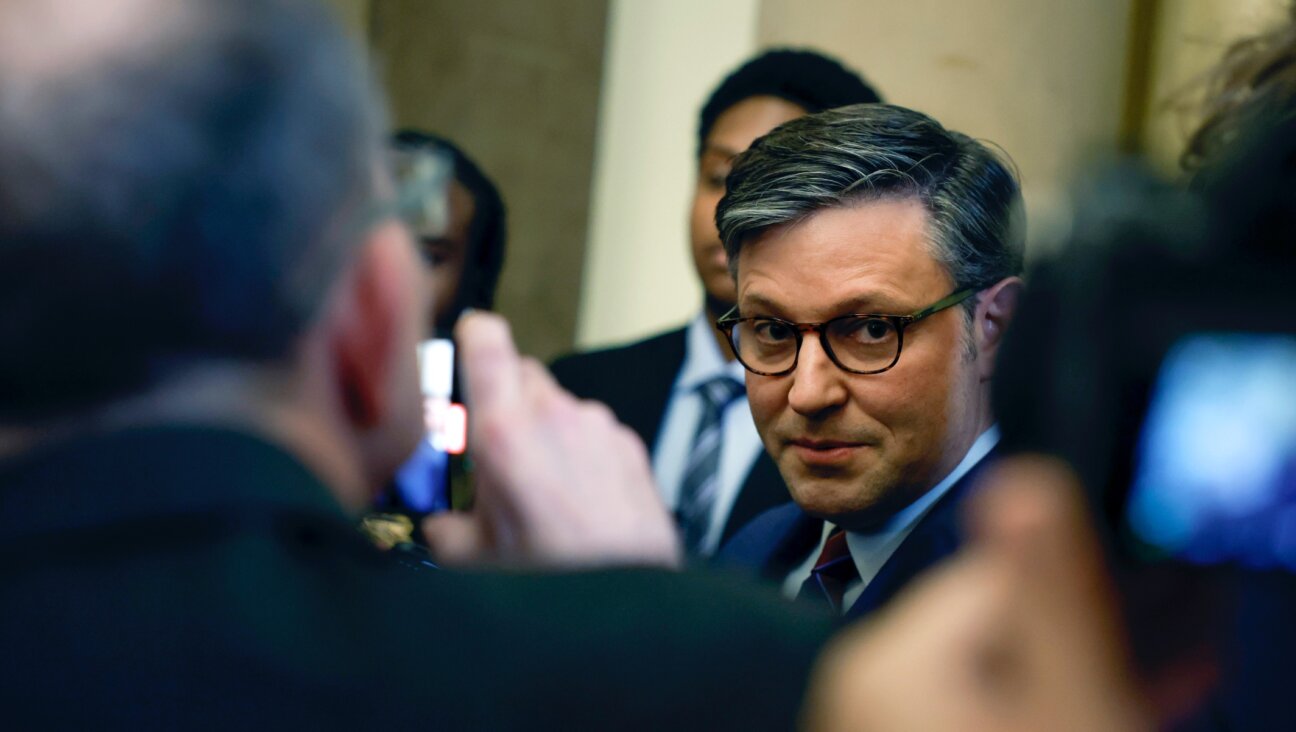Push for Mideast Peace Plan Gains Momentum Ahead Of Upcoming Summit
Jerusalem – Israeli officials are giving the first signs that they are preparing for negotiations on a final-status peace agreement with the Palestinians.
Both Israelis and Palestinians are readying for an international meeting set to discuss the Middle East conflict in November, but until now the Israelis have been wary of looking at this meeting as an entry point to final-status peace talks.
This week, though, government sources in Jerusalem said that Israel would like to arrive at the conference with an agreement in principle that will define the outlines of a final-status solution without going into specific details.
“We’re not talking about drawing lines on the map yet, but we do want a set of principles which will flesh out the general ideas discussed in previous agreements,” the government source said, speaking on condition of anonymity.
The first signs of the new Israeli stance were seen Monday, when Israeli Prime Minister Ehud Olmert met with Palestinian President Mahmoud Abbas in the West Bank city of Jericho. For years, Israel’s leaders have insisted that meetings take place in Israel, and Olmert’s trip to the Palestinian territories was a symbolic gesture meant to strengthen Abbas. More significant than the location was the promise made by Olmert to discuss “fundamental issues” with his Palestinian counterparts “hoping that this will lead us soon into negotiations about the creation of a Palestinian state,” as Olmert said when entering the meeting.
Previously, Israelis have stressed that the international meeting, scheduled to take place in Washington, would not set the timetable for an Israeli-Palestinian peace agreement. But sources on both sides now agree that the proposed summit has set in motion a frenzy of diplomatic activity aimed at reaching initial understandings before the conference convenes.
The conciliatory attitude being shown by the Israelis extended beyond just talk. On Tuesday, a day after the Jericho meeting, Israeli soldiers forcibly removed two Jewish families from the disputed marketplace in the predominantly Arab West Bank city of Hebron. The operation required hundreds of soldiers, who were met with stone-throwing from settlers. Thirty people were injured, including several policemen. Twelve Orthodox Jewish soldiers refused to take part in the evacuation and were court-martialed.
Also on Tuesday, a top Israeli general announced that Israeli forces would stop conducting training exercises involving populated Arab villages. A human rights group approached the military advocate general in March after several complaints were filed by reserve soldiers serving in paratrooper battalions. The battalions were trained in the capture of villages in the West Bank as well as battle in residential areas. The “dry-run” exercises were carried out without live fire, but nonetheless sparked panic among the residents of the villages.
The advocate general, Avihai Mandelblit, promised a probe of the training exercises and promised that until the completion of the probe, the training would be halted.
After the talks on Monday, Abbas promised that the lives of Palestinians would improve as a result of the Jericho meeting.
“Many issues which affect the Palestinians in their day-to-day lives will be resolved,” Abbas told Voice of Palestine radio in his first public comments after the meeting.
Palestinian officials said they received assurances from Olmert that Israel would approve as early as next week the removal of some of the hundreds of checkpoints, roadblocks and barriers that restrict Palestinian travel in the West Bank.
For the leaders, though, the big question is how far the upcoming peace talks will go. An Israeli government source told the Forward that Jerusalem’s objective is to arrive at the conference with a set of principles that will represent as wide an understanding as possible.
“We want the international meeting to give its blessing to these principles and to encourage both sides to reach further understandings,” the source said.
It is yet to be seen if the promised discussion on core issues will be seen by Arab states as a sufficient effort that would turn the conference into a “substantive” one, as the Saudis have demanded. American diplomats are engaged in talks with the neighboring Arab countries as well as with Israel and the Palestinians in order to formulate a mutually-agreable agenda for the conference. This formula will have to take into consideration, on the one hand, the Arab demand for having final-status talks on the agenda and, on the other, the Israeli concern about the possibility that the solution to the conflict will be turned over to an international forum.
The assistant secretary of state for Near Eastern affairs, David Welch, told reporters this week that there is already “some consensus” on these issues, though there is still much work to be done.
Israeli officials have stressed in recent days that progress in talks toward a final-status agreement is conditioned on the Fatah government refraining from any attempt to rebuild ties with Hamas — the group that now controls Gaza. A national-unity agreement between Fatah and Hamas is viewed by Israel as a potential obstacle that could undermine progress.
In a recent meeting with a foreign diplomat, Israel’s foreign minister, Tzipi Livni, used an example from the Israeli political scene to demonstrate the perils of national unity. “If [former prime minister] Sharon would have agreed to a national unity government, the Gaza disengagement would never have taken place,” Livni told the foreign official, stressing that unity does not necessarily serve the cause of promoting the peace process.
With reporting from Ha’aretz.

I hope you appreciated this article. Before you go, I’d like to ask you to please support the Forward’s award-winning journalism this Passover.
In this age of misinformation, our work is needed like never before. We report on the news that matters most to American Jews, driven by truth, not ideology.
At a time when newsrooms are closing or cutting back, the Forward has removed its paywall. That means for the first time in our 126-year history, Forward journalism is free to everyone, everywhere. With an ongoing war, rising antisemitism, and a flood of disinformation that may affect the upcoming election, we believe that free and open access to Jewish journalism is imperative.
Readers like you make it all possible. Right now, we’re in the middle of our Passover Pledge Drive and we need 500 people to step up and make a gift to sustain our trustworthy, independent journalism.
Make a gift of any size and become a Forward member today. You’ll support our mission to tell the American Jewish story fully and fairly.
— Rachel Fishman Feddersen, Publisher and CEO
Join our mission to tell the Jewish story fully and fairly.
Our Goal: 500 gifts during our Passover Pledge Drive!

























